How the Climate Crisis is Fueling a Mental Health Epidemic in Africa
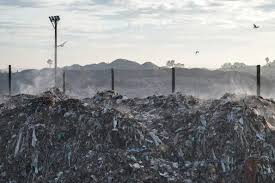
The climate crisis is a story often told in statistics: rising temperatures, parts-per-million of carbon dioxide, and projected sea-level rise. For many communities in Africa, however, it is a lived reality told in the language of loss, displacement, and constant precarity.
While the physical damage of extreme weather events like droughts and floods is well-documented, a more profound and often-overlooked consequence is taking root: a silent mental health epidemic. The chronic stress of living on the front lines of environmental change is fueling a rise in anxiety, depression, and long-term trauma, leaving invisible scars on the most vulnerable.
The Psychological Toll: From Direct Disaster to Chronic Distress

Source: Google
The link between climate-related disasters and mental health is becoming increasingly clear. When a flood washes away a family's home and livelihood, or a prolonged drought wipes out a season's harvest, the immediate trauma is immense.
This acute stress can trigger the development of conditions like Post-Traumatic Stress Disorder (PTSD), anxiety, and depression. The loss of property, the fear for one's life, and the displacement from one's community are all significant risk factors for mental illness.
However, the psychological toll extends far beyond a single catastrophic event. For many communities in Africa, the climate crisis is not an occasional disaster but a chronic state of distress.
The unpredictability of weather patterns, the constant worry about food and water security, and the inability to plan for the future create a pervasive sense of helplessness. This chronic stress can lead to a wearing down of a community’s resilience, making people more vulnerable to mental health problems.
A study in South Africa, for instance, found a greater likelihood of depression in places that have experienced multiple climate-related disasters. The psychological burden is particularly pronounced among marginalized and vulnerable groups, including women and individuals with lower income and education, who have fewer resources to cope psychologically with the consequences of these disasters.
The compounding effect of these stressors can be devastating. As an example from Nigeria illustrates, climate extremes have an outsized mental and emotional impact on women and children. A psychologist, Aisha Bubah, notes that the climate crisis has intensified family stress, leading to a vicious cycle where families unravel.
Men may migrate elsewhere to find work, leaving women and children behind to face poverty, while the risk of gender-based violence and substance abuse increases. The psychological impact of climate change on women, in particular, has been well-documented, with studies showing an increase in depression and anxiety after weather-related disasters.
The Rise of Eco-Anxiety and Solastalgia
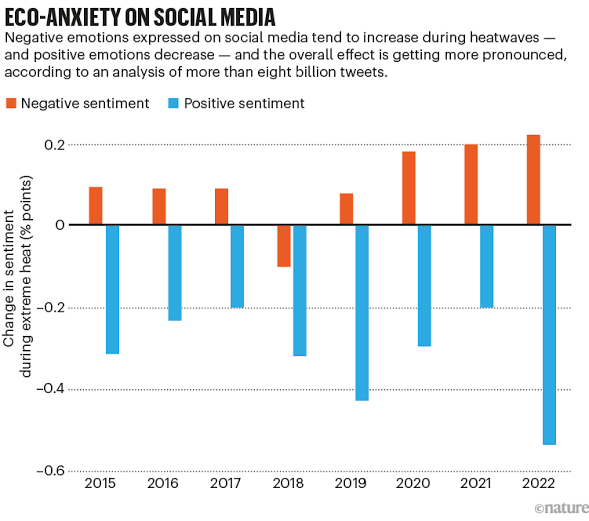
Source: Google
The term "eco-anxiety" describes a new form of chronic fear and distress related to the existential threat of environmental change. While this is a global phenomenon, it is affecting a new generation of African youth in a unique and profound way.
Many young Africans are not just reading about climate change; they are living it. They are seeing their farmlands turn to dust and their communities submerged by floods, and they are acutely aware of the inaction from global leaders.
This can lead to a deep sense of hopelessness, a feeling of being betrayed by older generations, and a lack of hope for the future of their planet.
The Eco-anxiety in Africa Project (TEAP) has highlighted that Africans experience a form of eco-anxiety that is unique to the continent, often triggered by direct, daily challenges. As one young person from a water-scarce region described, the anxiety is palpable when they don't know how long they'll have to go without water, a problem that directly threatens their ability to be self-sufficient through farming.
For these young people, eco-anxiety is not an abstract concept; it’s a daily struggle that manifests in physical and emotional symptoms, from sleeplessness and poor concentration to feelings of powerlessness and hopelessness.
Another related concept is "solastalgia," a term for a form of homesickness that people feel when their home environment is changing in ways they cannot control. A person experiencing solastalgia is not displaced from their home, but their home has been irrevocably altered by environmental changes, leading to a sense of profound loss and grief.
This is a common feeling in agricultural communities where a once-fertile land is now barren, or where a river they grew up swimming in is now a polluted or dried-up stream.
A Call to Action: Integrating Mental Health into Climate Response
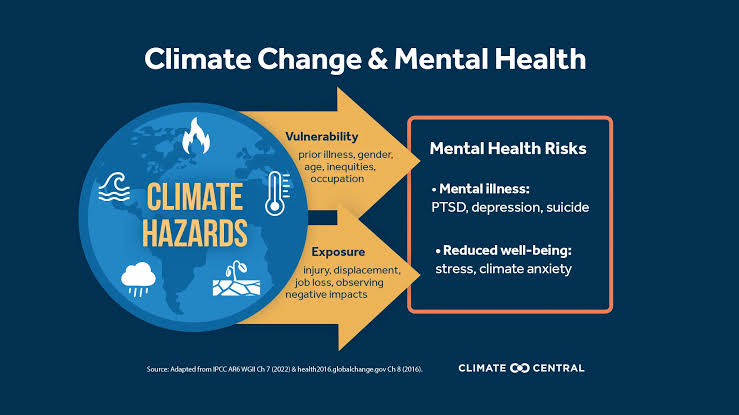
Source: Google
Addressing the psychological toll of climate change requires a holistic and integrated approach. It is not enough to simply provide emergency aid after a disaster; mental health support must be embedded into every aspect of climate response and adaptation.
• Policy and Funding: Governments and international bodies must recognize that mental health is a fundamental component of climate resilience. This means allocating specific funding for mental health services within climate adaptation and disaster response budgets.
Policies should be designed to support vulnerable communities, not just in terms of financial aid, but with accessible mental health resources, including psychological first aid. The WEMA (Weather Events and Mental Health Analysis) project is a crucial step in this direction, aiming to influence how African nations respond to the invisible impacts of climate change by embedding mental health into climate adaptation strategies.
• Community-Based Interventions: The most effective solutions are often community-led. Interventions should focus on building psychological capital, promoting optimism, and fostering a sense of collective efficacy.
This includes organizing community-based activities like tree planting or sustainable farming workshops, which can empower people to take action and feel a sense of control over their environment. Programs that teach practical skills and provide a forum for shared experiences can transform anxiety into constructive engagement.
• Therapeutic and Educational Support: Mental health support should be culturally sensitive and accessible. This could involve training community health workers to provide basic mental health support and referrals.
Educational programs that use creative methods, such as poetry and storytelling, can also help young people process their emotions and find a voice for their anxieties.
The climate crisis is a public health emergency, and its mental health consequences are the unseen scars that will affect generations. By focusing on the emotional and psychological dimensions of the crisis, we can provide a deeper, more empathetic understanding of its impact.
The time to act is now, to heal the minds and spirits of those on the front lines of a changing world.
Recommended Articles
Have We Become Too Comfortable on the Internet?

We live online now; posting, performing, connecting. But somewhere between sharing and oversharing, the line blurred. Ha...
Is Work-Life Balance a Myth?
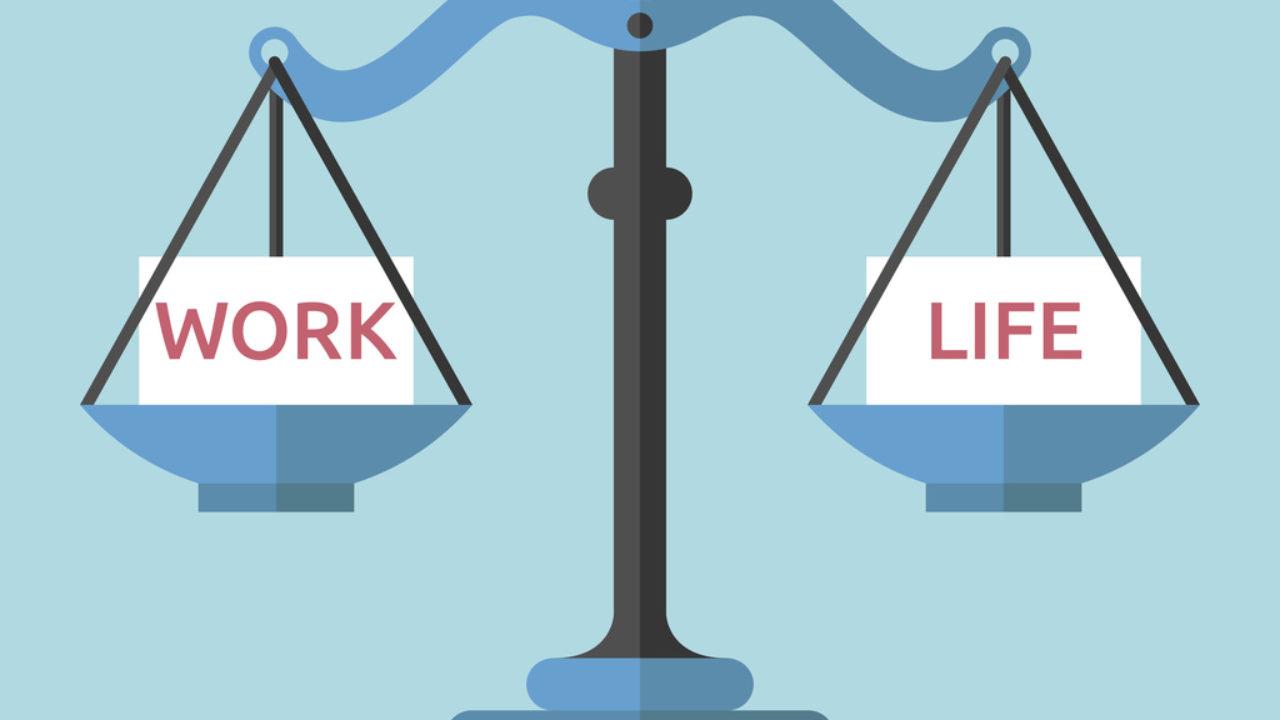
In a world where productivity is glorified and rest feels like rebellion, can work-life balance really exist? This refle...
Why Neglecting Mental Health is a Company's Most Expensive Oversight
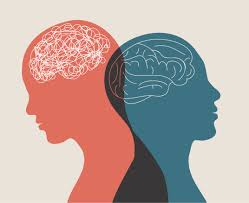
we’ve spent years framing workplace burnout as a problem of productivity and turnover, But that's only part of the story...
Decentralization Advocates Challenge Berners-Lee: Fixing the Web Beyond Regulation

Sir Tim Berners-Lee diagnoses the web's decline, citing polarization and mental health issues, and suggests regulation. ...
Boxing Legend Ricky Hatton: Manager's Grim Discovery and Fan Tributes

Boxing legend Ricky Hatton has passed away at 46, found by his manager Paul Speak at his Hyde home. The news has sparked...
You may also like...
Time Wealth: The Real Currency Everyone’s Now Chasing

In a world obsessed with hustle, “time wealth” has become the real luxury. This in-depth lifestyle feature explores ...
Food for the Mind: How Diet Shapes Mental Health More Than We Think
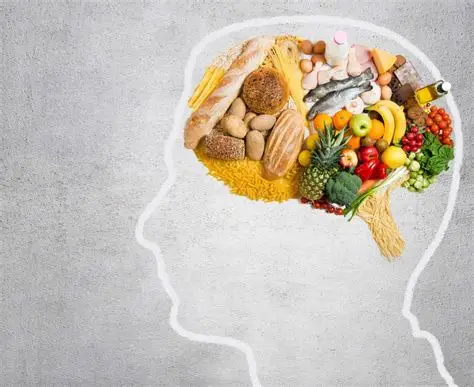
What we eat affects more than our bodies, it shapes our emotions, focus, and resilience. This feature talks on how diet ...
The End of Minimalism: Why We’re Choosing Meaning Over Aesthetic

A cultural shift is redefining modern living: Minimalism is fading, and “Meaningism” is rising, a movement that values c...
Sleep Deprivation: Africa’s Most Overlooked Health Epidemic

Sleep deprivation is quietly sweeping across Africa, undermining health, productivity and well-being. Different lifesty...
The Next Big Discovery Might Be Growing in Someone’s Backyard
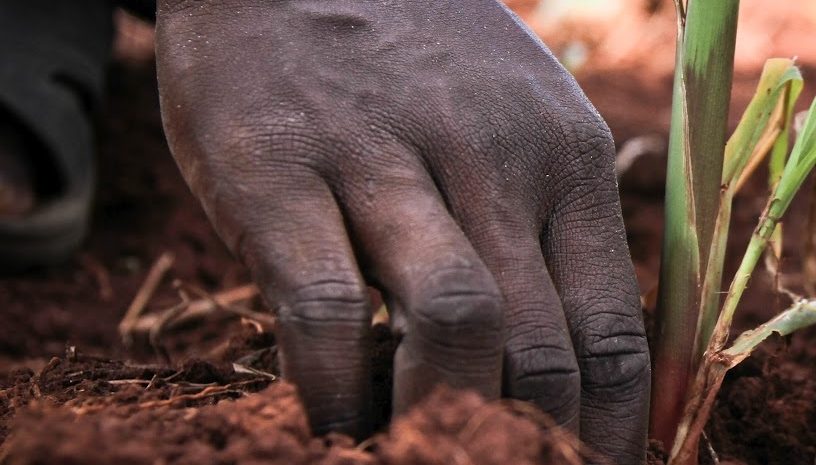
Hidden in gardens, local farms, and village backyards across Africa and beyond, the next major scientific breakthroughs ...
The Grand Egyptian Museum: Re-Engineered History of Africa.

2002 was the genesis of a dream. Egypt opens its Grand Museum in 4days.
NanoFilter: The Tanzanian Invention Turning Dirty Water into Life

Read on how Dr. Askwar Hilonga’s NanoFilter, a Tanzanian nanotech invention, is transforming access to safe drinking w...
The Myth of the Strong African Mother

Parenting burnout is becoming an unspoken crisis among African mothers. The pressures of motherhood, cultural expectatio...
